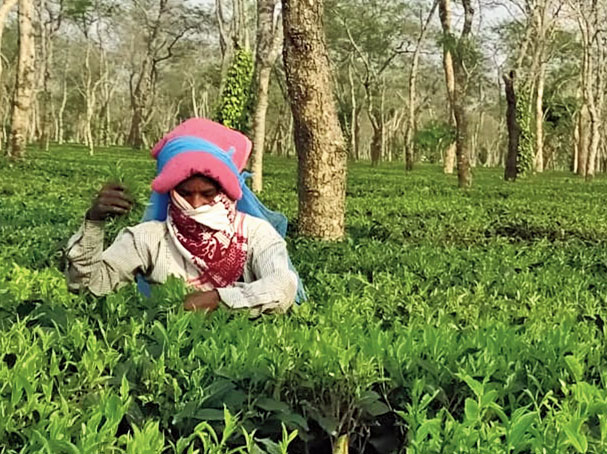The Assam government has allowed plant-protection measures in the tea gardens of the state during the lockdown period.
The tea industry had requested the government to allow it to undertake spraying/irrigation operations as there may be huge and permanent damages to the tea plants if adequate plant-protection steps through spraying of pest repellents and pest killers are not allowed.
“In view of scanty rainfall at present, there is a need to continue irrigation in tea gardens,” the Assam Branch Indian Tea Association (Abita) said in its letter.
Assam chief secretary Kumar Sanjay Krishna, in his letter, said spraying pesticide, weedicide and irrigation have been permitted during the lockdown period to ensure plant protection.
However, the order came with the riders that only workers who are willing to carry out such activities may be engaged and no worker should be forced, workers so engaged should be medically checked before starting work, adequate protective gear must be provided while spraying of pesticides and weedicide, social distancing and hand washing must be ensured and the management should spray disinfectants in the labour lines to ensure better hygiene.
A tea industry official said all chemicals which are used in spraying are Plant Protection Code (PPC)-approved. For instance, emamectin benzoate is used for looper caterpillar and thiamethoxam for helopeltis, spiromesifen and hexythiazox for red spider.
The PPC is a set of guidelines for regulating the chemical inputs in tea cultivation.
“Generally spraying or plant protection treatment is given in the morning hours and in the afternoon,” the official said.
A senior planter said, “There will be huge pest build-up from the second week of April if plant protection measures are not permitted.”
The tea industry is worried as the first flush has been lost and there is fear that the second flush which starts in May will take a hit too.
Plucking had just picked up in the gardens of Assam and this is the first flush period.
Leaves plucked during the first flush are the youngest and the most tender part of the tea plant and are said to yield the purest and freshest cup of tea that the plant is capable of producing.
Assam tea is generally known for the second flush, which comes in May-June. “If the second flush is hampered, exports will reduce by 25 to 40 per cent and other countries will start buying tea from other nations,” another official said.
West Bengal has also given clearance for spraying and irrigation in the tea gardens.











